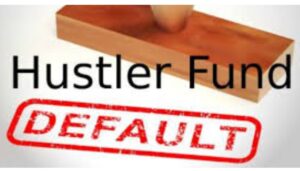Kenyans default more than Sh596 billion in loans as hard economic time bites; Report

Kenyans default on Sh596bn in loans as interest rates hit ceiling according to latest report by the Central Bank of Kenya (CBK)
Kenyans default on Sh596bn in loans as interest rates hit ceiling according to latest report by the Central Bank of Kenya (CBK).
As rising interest rates wreck havoc on Kenya’s banking sector loan book, borrowers have now defaulted on loans totaling more than Sh596 billion.
This has exposed more households and companies to new rounds of auctions and property seizures as lenders attempt to recover bad loans.
The stock of non-performing loans (NPLs) in Kenya increased to a 16-year high of 15% in August, up from 14.5 percent in July, according to the latest data from the Central Bank of Kenya (CBK).
This translates to more than Sh596 billion, worked as a share of the total loan book.
According to the CBK data, there has been an increase in loan defaults in the manufacturing, mining and quarrying, real estate, building and construction, and building industries.
The loan default rate matches up to the NPL ratio of 15.4 percent that was posted 16 years ago in June 2007.
The rise in the bad loans has been attributed to rising interest rates on commercial bank loans which have weighed heavily on customers servicing the facilities amidst a deteriorating macro-economic environment.
“The rise in interest rates has primarily come from decisions taken by the Monetary Policy Committee to stabilise the economy but have meanwhile resulted in pain in the short run,” Kenya Bankers Association (KBA) CEO Habil Olaka said in Business Daily interview.
“When rates go up, demand for credit goes down but even the existing portfolio starts having challenges.”
According to the banking sector lobby, the ability of businesses to service loans has been affected by waning demand from consumers as Kenyans contend with a high cost of living.
Kenya Power announces fresh initiative on meter installation
Parliament moves to amend death penalty after court’s ruling
Ruto’s economic policies not working; Employers Federation (FKE)
Waititu submits proposal to protect impeached governors
High court summons IG Koome over failure to execute arrest warrant against Defence PS
Government publishes new rules blocking diploma graduates from specific jobs
Equally, businesses have faced increased costs of production from elevated input prices, including the cost of electricity.
The deterioration in the banking sector asset quality could see commercial banks decrease their issuance of new loans as a way of containing the rising NPLs.
Despite this, recent months have forced CBK to tighten monetary policy, as the CBR increased to an almost seven-year high of 10.5 percent in June.
The increase has principally sparked the subsequent rise in interest rates in commercial banking as well as yields on other interest-bearing assets like government securities.
In July, the average commercial bank loan rate reached a 65-month high of 13.5 percent, and last week, the yield on short-term Treasury notes reached 15 percent with regard to the 364-day paper.
Also read,
Immigration department on spot after deported Chinese national sneaks back to Kenya
Why it’s taking long for retired teachers to get their pensions; TSC
Inside Biden, Ruto phone call following approval of Haiti mission
Bloomberg ranks Kenya’s stock market as the worst performer in the world
CONFUSION as Kenya MET directors issue conflicting update on El Nino rains
Follow us





